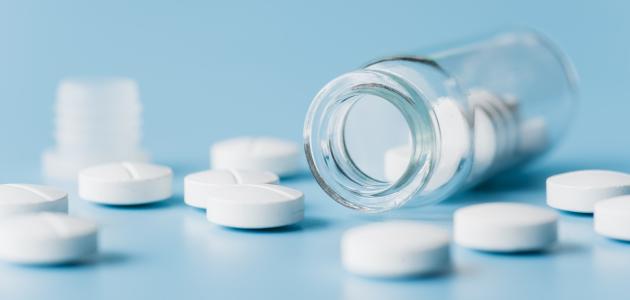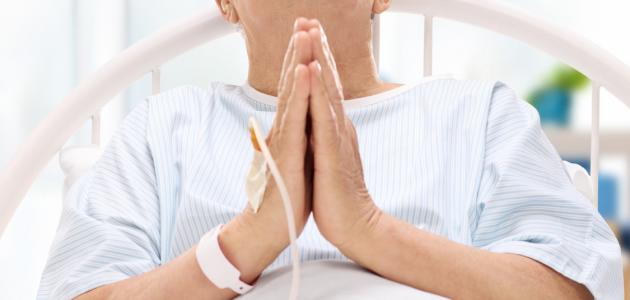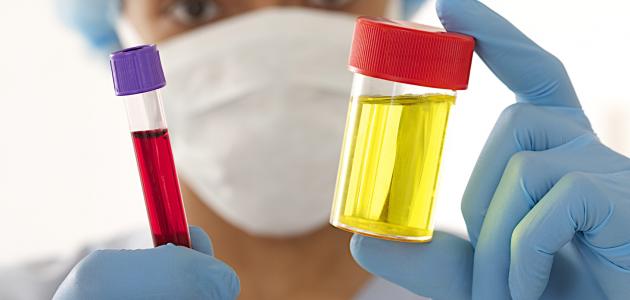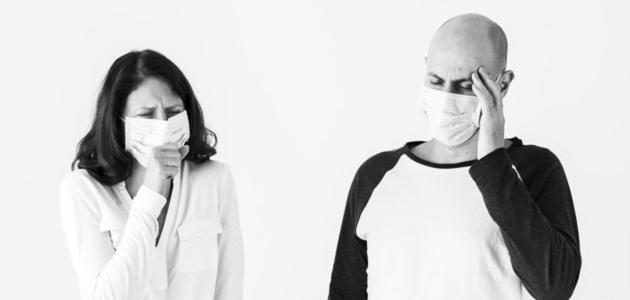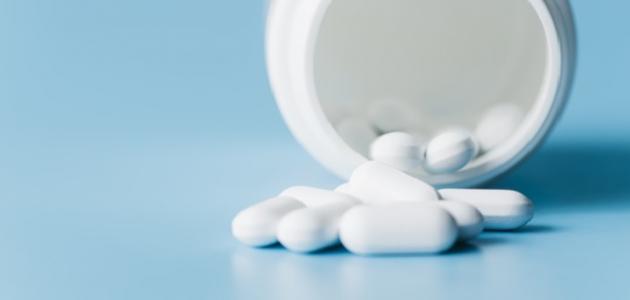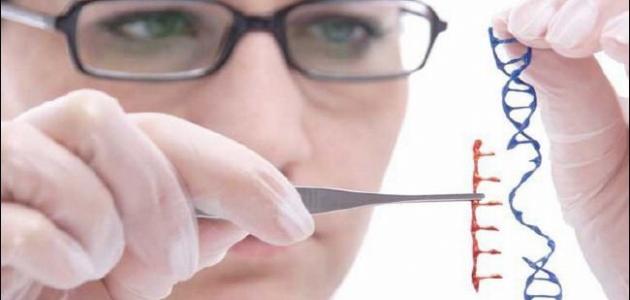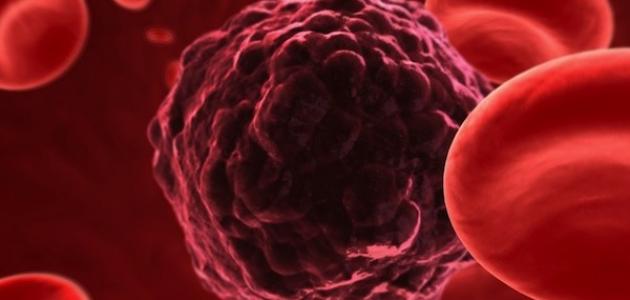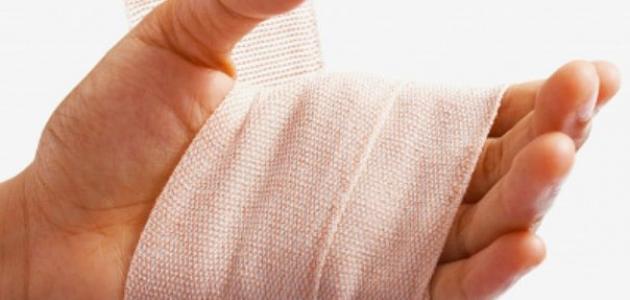Contents
- 1 Antidepressants
- 2 The principle of action of antidepressants
- 3 Use of antidepressants
- 4 The effectiveness of antidepressants
- 5 Duration of antidepressant use
- 6 types of antidepressants
- 7 Mechanism for choosing the most appropriate type of antidepressant
- 8 miss a dose of antidepressant medication
- 9 side effects of antidepressants
- 10 factors that increase the development of side effects
- 11 Precautions for using antidepressants
- 12 Antidepressant Interactions
- 13 References
Antidepressants
Antidepressants are used to control many medical conditions. Specifically, depression; Its use aims to prevent the recurrence of depression and improve the quality of life of the patient to a large extent, and it is one of the medicines that need a prescription to be dispensed, and the principle of its work is to try to achieve a balance between certain types of natural chemical compounds in the brain known as neurotransmitters . This is because it is believed that some psychological and behavioral problems may be caused by an imbalance of these vectors, and thus achieving a balance between them may be effective in treating these problems, and it should be noted that the effect of these antibiotics does not appear immediately, as it appears after several weeks of use, In some cases, it may be necessary to experiment with the patient more than one type of them before determining the most appropriate medicine for him, and it should be noted the need to continue using these medicines even after the improvement of symptoms and not to stop using them without consulting the specialist doctor Doctors usually ask that these medications be stopped gradually.[1] [2] [3]
According to the statistics of the Centers for Disease Control and Prevention, the percentage of people who use antidepressants in the United States over the age of 12 years increased from 7.7% during the period 1999-2002 to 12.7% during the period 2011-2014, and in this context it is indicated that the number of females is It is estimated that twice as many men use antidepressants. [4]
The principle of action of antidepressants
As mentioned, antidepressants increase levels of certain types of neurotransmitters in the brain. Such as serotonin and noradrenaline , which are believed to be responsible for feelings and improve your mood, so that the effect of antidepressants in increasing vector levels causes nerve to alleviate the chronic pain; This is because increased levels of neurotransmitters may disturb the pain signals that the nerves send, and it is worth noting that the use of antidepressants alone may not be sufficient to treat major depression; Since it controls depressive symptoms and does not always treat the cause of depression, the doctor may prescribe it along with other treatments to control these conditions. [2]
Use of antidepressants
Antidepressants can be used to treat many other health conditions. Including depression, the following is an account of the most prominent of these cases: [3]
- Agitation.
- Obsessive-compulsive disorder (*), commonly known as OCD.
- Urinary incontinence in children .
- Generalized anxiety disorder (*)
- Bipolar disorder (*)
- Post-traumatic stress disorder (*).
- Social anxiety disorder (*)
- Other medical conditions; Such as insomnia, migraines, and pain, [3] especially pain associated with neuropathy. [5]
The effectiveness of antidepressants
In fact, antidepressants start to work several weeks after they are taken. As it was found that most people who take these antibiotics do not feel any improvement during the first and second weeks of using these drugs, and their effect often begins gradually after two weeks of starting to use them. This explains why many patients stop using them because they think that these drugs do not work, and sometimes the patient may not feel any improvement after taking these antibiotics for a long enough time. This is due to several reasons: Such as the inadequacy of the medication or the prescribed dose to the patient's condition, failure to follow up with the health care provider, or the need for additional treatments; Like cognitive behavioral therapy, or as a result of irregularity in taking medication at the right time, so it is appropriate for the patient to stay in contact with his specialist doctor and to attend follow-up appointments. [3]
Duration of antidepressant use
The duration of antidepressant use depends on the patient's condition. Although most patients may need to take these drugs for a period of at least 6-9 months after getting better, some people may need to take them for a longer period of up to several years. Especially if the patient has previously suffered from depression, and sometimes a doctor may prescribe lifelong antidepressants for people who have frequent episodes of depression. [2] [6]
Types of antidepressants
Antidepressants can be divided into several groups, which can be explained as follows: [7] [8]
- Inhibitors recovery selective serotonin: , mainly increase these drugs levels of serotonin in the brain, while affecting very simple in levels of norepinephrine, Examples include citalopram , and Filoksian , And paroxetine , and sertraline , and it should be noted that this group of antidepressants is most used; Because they have fewer side effects and less severity, compared to other groups of antidepressants.
- Oxidase inhibitors of monoamine: of these drugs, increase levels of both norepinephrine and serotonin, and dopamine by inhibiting the enzyme known as unilateral Boksidaz Secretary responsible for breaking down these vectors, and it should be noted that these drugs is one of the first species It appeared with the aim of treating depression, but its use has become limited at present. Because there are concerns associated with the possibility of it interacting with many other medicines and some foods.
- Antidepressants with specific serotonin action and noradrenaline action: , drugs of this group can be used. Mirtazapine is used to treat depression in some cases where an SSRI cannot be used.
- Recovery of inhibitors of serotonin and norepinephrine: , such as; Venlafaxine, desvenlafaxine, and duloxetine are the most commonly used drugs in this group. [9]
- Tricyclic antidepressants:Tricyclic Antidepressants, these medications increase levels of both serotonin and norepinephrine in the brain. This improves mood and relieves depression, and it should be noted that this group of drugs is among the first to be used in order to control depression, although drugs that inhibit the recovery of serotonin and norepinephrine, types of SSRI and other antidepressants are more used today. However, tricyclic antidepressants are a good option for treating depression in the event that the patient does not respond to other groups, examples of tricyclic antidepressants are: amitriptyline, amoxapine, desipramine, and doxepin Doxepin, Imipramine, and Nortriptyline[9]
- Atypical antidepressants , which include drugs that do not fall under the other groups, examples of which are bupropion and trazodone. [9]
The mechanism for selecting the most appropriate type of antidepressant
The specialist doctor in choosing the appropriate type of antidepressant depends on several factors, including the following: [10]
- Symptoms that the patient complains of: Symptoms differ from one patient to another. Therefore, one of the antidepressants may relieve some symptoms better than another type. In cases where the patient suffers from sleep problems, drugs that have a sedative effect may be prescribed.
- Possible side effects: The side effects of antidepressants differ from one drug to another and from one person to another.
- The effectiveness of the drug in a depressed relative: The effectiveness of an antidepressant in a first-degree relative, such as a parent or sibling, can indicate its effectiveness in the patient concerned, and the effectiveness of antidepressants in treating previous cases of depression may play an important role in the choice.
- Interaction with other drugs: Some antidepressants can cause serious problems when taken with other drugs, so it is worth considering other types of drugs that the patient uses.
- Pregnancy or breastfeeding: The decision to use antidepressants during pregnancy and breastfeeding depends on a balance between the benefits and risks involved.
- Other health conditions: The use of antidepressants may result in the suffering of certain complications in previous cases of certain physical or psychological disorders, and on the other hand, some antidepressants can be used to treat other physical or psychological conditions in addition to depression; For example, bupropion may relieve symptoms of both attention-deficit / hyperactivity disorder and depression, and amitriptyline may also be used to prevent migraines in addition to treating depression.
- Cost: Some antidepressants have a high cost, and therefore this factor must be taken into consideration, especially if the patient's financial condition is not affordable.
Miss a dose of antidepressant medication
The patient should adhere to taking the anti-depressant medication according to the dose specified by the doctor. To get the best benefit from the drug, therefore, in the event that one forgot or missed a dose and did not take it at the scheduled time, the person should take it as soon as he remembered it or at the earliest opportunity, except in cases where the medicine happened to remember the date of taking the next dose, in this case the person should Skip the missed dose, and take the currently scheduled dose, with the necessity to avoid doubling the dose as a way to make up for the missed dose. [11]
Side effects of antidepressants
In fact, the side effects caused by antidepressants differ from one person to another, and they also differ from one drug to another. As mentioned previously, SSRIs cause fewer side effects compared to those from using tricyclic antidepressants and MAOIs, and in general, many of these symptoms may persist for a few days or weeks after starting these medications, so that many people notice They improve after that, while some of the effects may continue to appear until they stop taking them. The most common side effects of antidepressants can be explained as follows: [6]
- Headache.
- Feeling irritated and excited.
- Nausea
- Vomiting
- Feeling sleepy.
- Decreased sexual desire.
- Dry mouth.
- overweight.
It should be noted that some types of antidepressants can lead to withdrawal symptoms on the patient when they are stopped suddenly. Where these withdrawal symptoms continue for a period ranging between two weeks to two months, and we mention the most prominent of these symptoms as follows: [3]
- Anxiety.
- Dizziness
- Nightmares are disturbing.
- Feeling similar to the body being exposed to electric shocks.
- Flu-like symptoms.
- Tummy ache.
Factors that increase the development of side effects
The side effects may appear to have antidepressants used by anyone, but some groups are more vulnerable than others, and in a statement comes to the most important of these categories: [12]
- People over the age of 65: Studies indicate that their use of certain types of antidepressants may increase the risk of falls, fractures, or decreased bone density.
- Pregnant women: The use of certain types of antidepressants in the later period of pregnancy may lead to withdrawal symptoms on the newborn shortly after birth. This is characterized by shivering, restlessness, mild breathing problems, and a weak crying voice.
- Patients with bipolar disorder: Antidepressants can worsen bipolar disorder, or their use may enhance the development of manic episodes.
Precautions for using antidepressants
The caveats of using antidepressants can be explained as follows:
General caveats
The following is a statement of the dangers of using anti-depressants for some groups: [13]
- Breastfeeding and pregnancy: We have previously indicated the need to consult a doctor before starting to use them during pregnancy, as well as in cases where a woman uses these drugs and wants to have a pregnancy, it may require a drug change or dose reduction or otherwise, and therefore we urge the need to consult a doctor if desired Pregnancy after using these drugs, and it is worth paying attention to medicines that may cause withdrawal symptoms in the infant, and in general the possibility of birth defects and other problems for the fetus as a result of the expectant mother taking antidepressants is low. [10]
- Children: There are warnings about a possible link between antidepressants and the possibility of changing thinking and outlook towards life in a negative way in young people and adolescents under the age of 25, but these warnings do not mean avoiding the use of antidepressants to treat depression or other conditions in children and adolescents. This is a matter of observing the patient, trying to know his way of thinking, and following up on his condition with the specialist doctor. [14]
Special precautions for antidepressants
The following is a statement of the dangers of using anti-depressants for some groups: [15]
- Selective serotonin reuptake inhibitors (SSRIs): These drugs may not be suitable for patients who have bipolar disorder during episodes of mania, people with type 1 and 2 diabetes, epilepsy, kidney disease, people with bleeding disease, or who are using drugs that increase the likelihood Bleeding develops; For example, warfarin.
- Serotonin and norepinephrine reuptake inhibitors: These drugs may not be suitable for patients who have heart disease or who have uncontrolled high blood pressure.
- Tricyclic antidepressants: These drugs may not be suitable for patients who have had heart disease or a heart attack, or those who suffer from liver disease, or the hereditary blood disorder known as porphyria (*), bipolar disorder, or schizophrenia Pheochromocytoma, an enlarged prostate gland, or epilepsy.
Antidepressant interactions
Antidepressants can interact with other drugs, including some available over the counter, such as ibuprofen. This is why it is advised to read the information leaflet accompanying the medicine to know which medicines should be avoided while taking antidepressants, or to consult a doctor or pharmacist about possible interactions with these medicines, and it is worth noting the need to avoid taking two different types of antidepressants unless prescribed by the doctor to avoid any associated risks Thus, as the simultaneous use of SSRIs and SSRIs and norepinephrine may lead to suffering from Serotonin Syndrome due to high levels of serotonin in the brain, and other interactions of antidepressants can be explained as follows: [16] [17]
- Drugs: It is worth avoiding the use of illegal drugs and narcotics, especially while using antidepressants, including cocaine (Cocaine), heroin , and ketamine , and the use of drugs may increase symptoms of depression And mental health worse.
- Alcohol: It is worth avoiding drinking alcohol, especially while using antidepressants, as alcohol can worsen depression, and may increase the severity of the side effects of some antidepressants, such as drowsiness problems, dizziness, and poor coordination. [18]
- St. John's wort: or St. John's wort, this plant may interact with many medications and may cause some side effects. Such as dizziness, drowsiness, and difficulty concentrating, especially when consumed alongside alcohol , and in general it is advised not to use any of the herbal recipes without consulting a doctor. [19]
To learn more about other methods of treating depression, read the following article: ( Methods of treating mental depression ) .
Margins:
(*) Obsessive-compulsive disorder: It is a psychological state that enters the sufferer with a vortex of obsessions and compulsive behaviors. Obsessions are thoughts or feelings that the sufferer suffers from continuously and in a way that leads him to do actions, and these actions are the compulsive behaviors that the sufferer resort to in the hope of getting rid of the obsessions that occupy bale. [20]
(*) Generalized anxiety disorder: It is the feeling of extreme exaggerated anxiety about the conditions of daily life, although there is no need for that. [21]
(*) Bipolar disorder: It is a psychological disorder represented by abnormal fluctuations in mood, energy levels in the body, and the ability to perform daily tasks, and in general it is represented by episodes of mania and other depression. [22]
(*) Post-traumatic stress disorder: It is a disorder resulting from exposure to dangerous, frightening or terrifying accidents, and although most individuals suffer from a reaction after exposure to these situations, they usually return to their normal nature after a short period of time. For people whose reaction continues they may be eligible for a PTSD diagnosis. [23]
(*) Social anxiety disorder: This condition is also known as social phobia, and it is represented by a strong fear of negative evaluation or social rejection. Physical symptoms such as heavy sweating, rapid heart rate, etc. [24]
(*) Porphyria: Although porphyrins are important for the formation of hemoglobin in the body, an increase in the proportion of chemicals that are bound to porphyrins above the normal limit causes real problems, and this condition is known as porphyria. [25]
(*) Pheochromocytoma: It is a type of tumor that affects the adrenal gland, and causes an overproduction of the hormones adrenaline and noradrenaline. [26]
References
- ↑ "Antidepressants" , medlineplus.gov , Retrieved 10-10-2019. Edited.
- ^ A b t "Antidepressants" , Www.nhsinform.scot , Retrieved 10-10-2019. Edited.
- ^ A b t w c "Trade shows All About antidepressants Transcranial" , www.medicalnewstoday.com The , Retrieved 10-10-2019. Edited.
- ↑ “antidepressant use among persons aged 12 and over united states” , www.cdc.gov , Retrieved 10-10-2019. Edited.
- ↑ “Tricyclic antidepressants and tetracyclic antidepressants” , www.mayoclinic.org , Retrieved 10-10-2019. Edited.
- ^ A b "How To Your Depression Medicine Can Affect Your Life" , the www.webmd.com , Retrieved 14-10-2019. Edited.
- ↑ www.nhs.uk, Retrieved 10-10-2019. Edited.
- ↑ "Antidepressants, side effects, list, types uses, and alcohol interactions" , www.medicinenet.com , Retrieved 10-10-2019. Edited.
- ^ A b v "Beyond Prozac: The the Most Commonly Prescribed Antidepressants" , Www.verywellmind.com , Retrieved 10-10-2019. Edited.
- ^ A b "Antidepressants: That's Selecting one 's Right For You" , Www.mayoclinic.org , 17-11-2017, Retrieved 10-10-2019.
- ↑ "antidepressants" , www.nhsinform.scot , Retrieved 6-11-2019. Edited.
- ↑ "Antidepressant Medication" , www.helpguide.org , Retrieved 10-10-2019. Edited.
- ↑ "Antidepressants" , www.mind.org.uk , Retrieved 10-10-2019. Edited.
- ↑ "Antidepressants for children and teens" , www.mayoclinic.org , Retrieved 10-10-2019. Edited.
- ↑ "Antidepressants" , www.nhsinform.scot , Retrieved 10-10-2019. Edited.
- ↑ "Cautions - Antidepressants" , www.nhs.uk , Retrieved 10-10-2019. Edited.
- ↑ “Antidepressants: Options, Advantages, and Precautions” , www.drugs.com , Retrieved 6-11-2019. Edited.
- ↑ "Can I drink alcohol if I'm taking antidepressants?" , www.nhs.uk , Retrieved 10-10-2019. Edited.
- ↑ "Antidepressants and Alcohol Interactions" , www.drugs.com , Retrieved 10-10-2019. Edited.
- ↑ "What is OCD?" , iocdf.org , Retrieved 10-10-2019. Edited.
- ↑ "Generalized Anxiety Disorder" , www.webmd.com , Retrieved 10-10-2019. Edited.
- ↑ "Bipolar Disorder" , www.nimh.nih.gov , Retrieved 10-10-2019. Edited.
- ↑ "Post-Traumatic Stress Disorder" , www.nimh.nih.gov , Retrieved 10-10-2019. Edited.
- ↑ "Social Anxiety Disorder" , adaa.org , Retrieved 10-10-2019. Edited.
- ↑ "Porphyria" , www.mayoclinic.org , Retrieved 10-10-2019. Edited.
- ↑ "Pheochromocytoma" , medlineplus.gov , Retrieved 10-10-2019. Edited.
